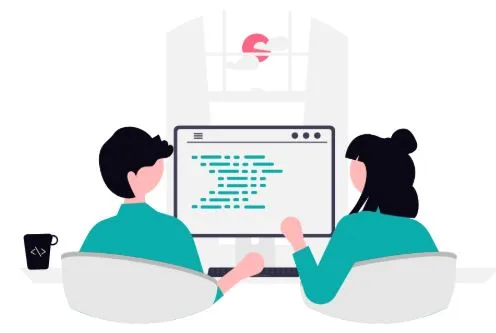Lessons Every Owner Learns While Building a Business
It’s not the taxes. It’s not the late nights or the empty bank account or the sudden need to learn how commercial leases work. It’s that building a business rewires how you see everything—from your time to your friends to your definition of success. In this blog, we will share the real lessons that only surface after you’ve been in the fight a while.
Friends Change, and So Do You
This one stings. When you go all-in on your business, you start to notice something. The invites slow down. Text threads go quiet. You miss birthdays, baby showers, fantasy football drafts. The world keeps spinning, and you start falling off the edge of people’s lives.
At first, it feels personal. Then you realize it’s just time doing its thing. You shifted. They didn’t. And not everyone’s supposed to stick around when you rewire your life.
You also meet new people. Some are fellow founders. Others are die-hard customers who treat your product like magic. Or random strangers online who comment “this changed my life” on a video you posted at 2 a.m. Those interactions remind you why you started. They pull you through when revenue dips or a launch flops.
You’re Not Building a Business. You’re Getting Knocked Down—and Learning to Get Back Up
No one escapes the first punch. Maybe it’s a supplier who ghosts. Maybe it’s a social media ad that burns cash with no return. Or maybe it’s that awkward moment you realize your “perfect idea” only exists in your head. Every business owner takes these hits. What separates the ones who stick around from the ones who fold is how fast they adjust without losing momentum.
This cycle—test, fail, recover—repeats itself constantly, even for companies pulling in millions. Frank VanderSloot, the former CEO and founder of Melaleuca: The Wellness Company, didn’t get a free pass when he started out in 1985. He pushed through legal threats, market skepticism, and industry snubs while building a business that now serves millions. And not just with vitamins and wellness packs—Melaleuca sells everything from cold meds to eco-friendly cleaners. His playbook wasn’t luck or perfect planning. It was obsession with execution, no matter how many times things broke.
That stubborn push to survive is what bonds all business owners, from Main Street to Silicon Valley. The same instincts that helped founders like VanderSloot course-correct early are what still help entrepreneurs today navigate a world shifting faster than ever. Economic uncertainty, AI disruption, sudden changes in consumer trust—every founder faces these winds, and resilience isn’t optional anymore. It’s the entire game.
Selling Is Not a Skill. It’s a Survival Trait
Founders eventually realize they’re always selling—pitching investors, convincing suppliers, motivating employees, even negotiating with landlords for another week on the rent. The moment you stop selling, your business flatlines.
Forget the Hollywood version of “sales” as charm and charisma. In real life, selling looks more like: emailing a hundred leads who never reply, then reworking your entire pricing sheet after someone finally answers. It’s constantly asking why no one’s buying and fixing the answer every single day. This is especially brutal for founders with a product background. They think if the product is good, people will come. They won’t. People don’t come until you go out and drag them in.
Now toss in how the sales game is changing. Buyers don’t want to talk on the phone. They ghost quicker. Reviews drive decisions more than features. And your competitors are getting louder while platforms keep throttling your reach unless you pay. So you build landing pages, shoot short-form videos, spend $400 testing Facebook ads that go nowhere, and realize the best salesperson at your company might be the 19-year-old freelancer editing your TikToks.
No one teaches you how weird and relentless this gets. You just figure it out because there’s no backup plan. And when sales do start coming in, a different problem shows up: operations.
Your Systems Will Break. That’s How You Know They Work
Ask any business owner who’s made it to year three what keeps them up at night. It’s not customer complaints or social media drama. It’s the spreadsheet they forgot to update. The staff member they didn’t train properly. The warehouse mix-up that cost thousands. The invoice that never got sent.
When things are small, you do everything by hand. You pack boxes yourself. You follow up on every email. You memorize order histories and track cash flow in your head. Then things grow. Fast. And everything that worked before starts to collapse under its own weight.
That’s the inflection point. Either you build systems that can scale, or your business strangles itself with its own growth. Most choose the second option without realizing it—until it’s too late. They keep doing things manually, working weekends, blaming others when orders back up or quality drops. But chaos isn’t random. It’s a red flag. It’s the business yelling, “Fix this now or lose everything.”
Modern founders also run headfirst into tool fatigue. There’s a platform for everything—CRMs, ERPs, payroll, ads, email flows. None of them talk to each other the way they should. Everyone promises automation. What you get instead is 47 logins, bloated subscriptions, and one weird Zapier workflow that breaks once a week.
The companies that survive aren’t necessarily the most tech-savvy. They’re just the ones who obsess over the boring stuff—fulfillment accuracy, uptime, inventory counts, lead routing. Founders who treat systems as oxygen win. The rest run out of air.
Nobody Cares as Much as You Do. But That’s the Job
Employees quit. Customers complain. Algorithms change. Partners bail. You will care about all of it. You’ll also be the only one who does—at least at first.
That’s not cynicism. It’s just gravity. No one else is carrying what you carry. And expecting others to match your drive usually leads to disappointment. What works better is building a system where people can do their best work without needing to care as much. That’s what good leadership is.
But leadership’s not some TED Talk slogan. It’s catching your own mistakes first. It’s staying calm when everything breaks. It’s delivering hard feedback without killing morale. It’s protecting the mission when it would be easier to just quit and get a job again.
Some days, you’ll wish you were the employee instead of the owner. Then a customer will email out of nowhere and say your product helped them through something awful. Or your first hire will call to say they bought a house. Or you’ll look at your bank account and realize this month didn’t suck.
You built that. And no one can take that from you. Even if everything falls apart tomorrow, you’ve already learned what no book, class, or tweet thread could ever teach.
You earned the scars. You earned the insight. Now go use it.




